US tech giants to testify
The CEOs of the world’s largest tech companies plan to argue they face intense competition from each other and rivals, in an antitrust hearing overnight.
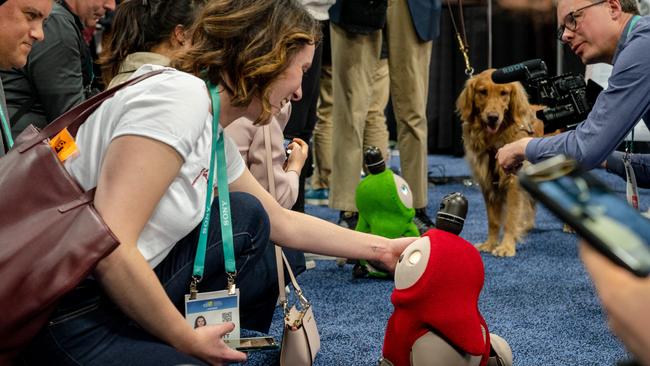
Welcome to The Download, The Australian’s technology blog for the latest breaking tech news.
4.50pm: US tech giants to face antitrust hearing
The chief executives of four of the world’s largest tech companies, Amazon.com, Facebook, Apple and Google, plan to argue in a congressional hearing on antitrust on Wednesday that they face intense competition from each other and from other rivals.
The testimony from Amazon’s Jeff Bezos, Facebook’s Mark Zuckerberg, Google’s Sundar Pichai and Apple’s Tim Cook, which was released Tuesday, portrays four chief executives who are looking over their shoulders at competitors who could render them obsolete.
Pichai argued that search - which Google dominates by most metrics - was broader than just typing a query into Google, and said he remained concerned about being relevant as people turn to Twitter, Pinterest or other websites for information.
“We know Google’s continued success is not guaranteed. Google operates in highly competitive and dynamic global markets, in which prices are free or falling, and products are constantly improving,” Pichai said in the prepared remarks.
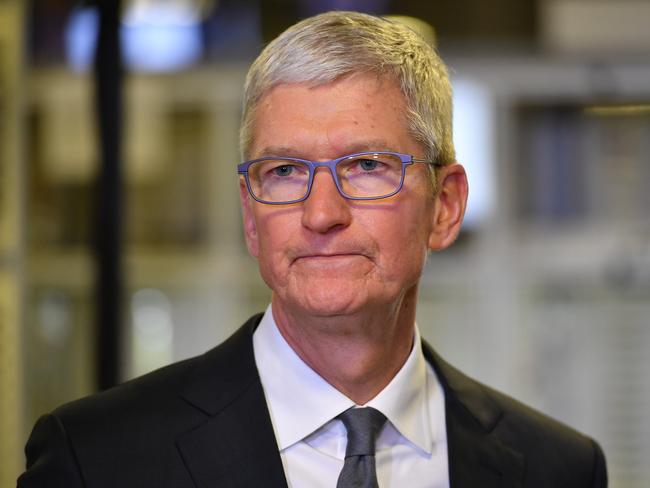
The four will testify to a panel of lawmakers investigating how their business practices and data gathering have hurt smaller rivals as they seek to retain their dominance, or expand.
In his remarks, Bezos said Amazon occupies a small share of the overall retail market and competes with retailers like Walmart, which is twice its size. He also said the coronavirus pandemic boosted e-commerce businesses across the spectrum and not just Amazon.
Bezos also lays out how small sellers have succeeded on Amazon’s third-party marketplace, a practice that has come under scrutiny from lawmakers.
In his prepared testimony, Zuckerberg argued that Facebook competes against other companies appearing at the hearing and against others globally.
Zuckerberg will also defend Facebook’s acquisitions by saying the social media platform helped companies like WhatsApp and Instagram grow. Both are owned by Facebook.
He will also remind lawmakers of the competitive threat US tech companies face from China, saying that China is building its “own version of the internet focused on very different ideas, and they are exporting their vision to other countries.”
Zuckerberg also renewed Facebook’s call for government regulation. He has previously called for more laws in areas where the company has been criticized - such as harmful content in social media, election integrity and privacy.
Apple’s Tim Cook will tell the committee the company “does not have a dominant market share in any market where we do business. That is not just true for iPhone, it is true for any product category.”
He will argue the company’s “commissions are comparable to or lower than commissions charged by the majority of our competitors. And they are vastly lower than the 50 to 70 per cent that software developers paid to distribute their work before we launched the App Store.”
1.40pm: Tesla received government hand-outs
Tesla received payroll related benefits from the government in the first half of the year to help reduce the impact of the coronavirus pandemic on its business, the electric carmaker said in a filing on Tuesday.
The company, whose Chief Executive Officer Elon Musk has spoken against further government aid as Congress debates another round of stimulus, said that along with cost cuts, the benefits had offset almost all of its costs due to the idling of factories in this year‘s lockdowns.
Tesla’s only US vehicle factory — in California, where most of its cars are produced — was shut down for some six weeks in the second quarter ended June after an initial standoff with local authorities.
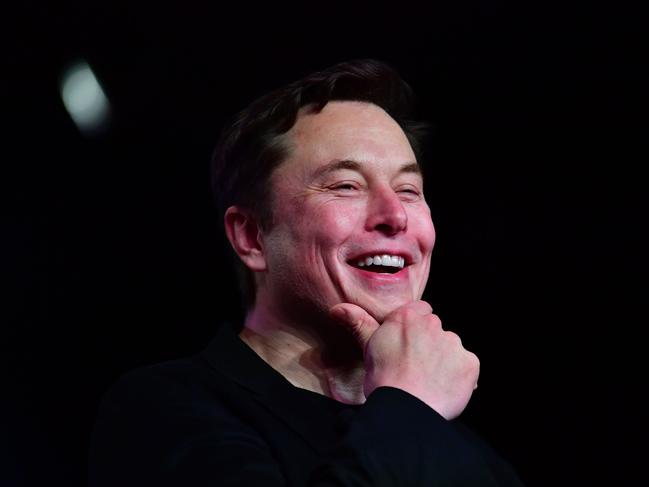
Reuters could not immediately verify which government assistance the company received and in what country.
Shares of the company were down 0.26 per cent in midday trading at $US1,539, after earlier falling as much as 1.4 per cent.
Tesla and its subsidiary SolarCity do not appear on a list by the US Small Business Administration, which issued forgivable loans to millions of companies in an effort to prevent widespread layoffs.
Tesla did not immediately respond to a request for comment.
“As part of various governmental responses to the pandemic granted to companies globally, we received certain payroll related benefits which helped to reduce the impact of the COVID-19 pandemic on our financial results,” the company said in its regulatory filing.
Tesla’s billionaire CEO Musk said in a post on Twitter on Friday that another US government stimulus package “is not in the interests of the people.”
US Republicans and Democrats are in the midst of debating a second massive coronavirus aid package to prop up the economy and help millions of Americans who have lost their jobs during the pandemic.
Reuters
David Swan 10.40am: Banks ‘too slow’ on BNPL
Australia‘s ‘buy now, pay later’ stocks have been red hot in recent weeks, and the chief strategy officer of listed BNPL provider Zip Tommy Mermelshtayn told The Australian that the big four banks had been slow to move when it comes to playing catch up.
CommBank has invested $US300m into Swedish BNPL provider Klarna, but the likes of Westpac, ANZ and NAB have called for more regulation for the still-fledgling sector.
“I would expect banks to be looking for partnership opportunities in this space, because I don‘t think they have the capabilities to really build these types of solutions [themselves],” he told The Australian for its podcast Forward Slash.
“It‘s not only banks, but traditional credit card companies too. There are a lot of players looking this space and this tremendous growth of customers, and thinking about how do they get a piece of the action. There will be a lot of really interesting things happening in this space in the not too distant future.”
Mr Mermelshtayn added that the BNPL players that focus on their online experiences will likely be the ultimate victors.
He said that although Zip offers solutions online and in store, it’s easier to acquire a customer and have a conversation through an online journey where the company can be in control.
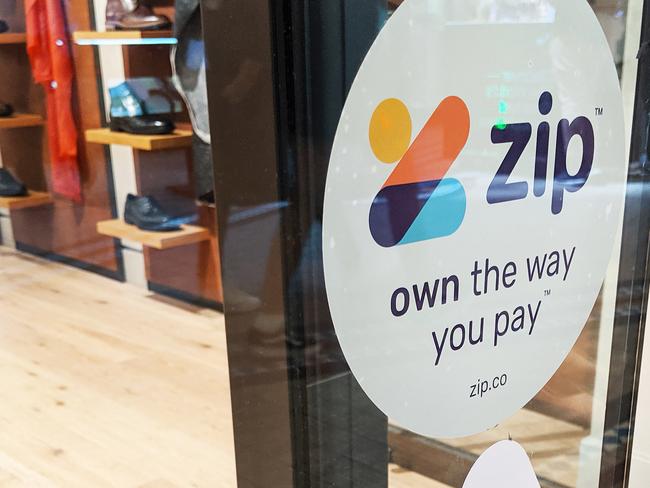
“When you think about the rapid adoption of digital payment solutions in online settings, the growth of e-commerce, the death of cash, the growth of debit cards... It all really bodes well for the continued growth of the segment.
“I think that‘s actually translating into the appreciation of market prices.”
10.00am: Facebook offers cash to poach TikTok users
Facebook’s Instagram has offered financial incentives to TikTok users with millions of followers to persuade them to use its new competing service, an escalation in a high-stakes showdown between the two social-media giants.
Instagram has made lucrative offers to some of TikTok’s most popular creators to use the new service, Reels, according to people familiar with the matter. Facebook is planning to unveil Reels next month. The potential payments for some would be in the hundreds of thousands of dollars, some of the people said.
Many active TikTok users, known as creators, have gathered large followings on the platform. Companies have tried to reach these large audiences by paying popular creators to use specific songs, wear branded clothing and directly promote products in their videos.
Instagram has “approached a diverse range of creators about Reels in several of the countries where it’s currently being tested,” company spokeswoman Sarissa Thrower said. “We remain committed to investing in both our creators and their experience.”
The move is the most significant sign yet that Facebook intends for its Instagram Reels service to directly compete with ByteDance’s TikTok. Reels is an Instagram feature that, like TikTok, allows users to share short-form video, and is scheduled to launch in the US and several other countries next month.
The Instagram overtures to creators are the latest in a continuing back-and-forth between the two social-media giants. In recent years, TikTok has flooded Facebook and Instagram with ads, targeting their users on the home turf of the social media company.
To counter the Instagram push, TikTok announced a $200 million fund that will help creators on the platform “realise additional earnings that help reward the care and dedication they put into creatively connecting with an audience that’s inspired by their ideas.”
Such payments in exchange for exclusive content from top creators aren’t unheard of on social-media platforms. Last year, talent agents representing online celebrities said Microsoft likely offered celebrity video gamer Ninja tens of millions of dollars to play games live on its now-shut Mixer streaming platform.
The Wall Street Journal
Chris Griffith 9.10am: World’s biggest tech fair, CES, goes virtual
It won’t be the same but this was inevitable. The world’s biggest technology fair, The Consumer Electronics Show held annually in Las Vegas, has been cancelled as a physical meet-up and will go digital only in 2021.
Gary Shapiro, the president of the Consumer Technology Association, announced the change in a cheery video.
CES will be “an all digital experience,” he says. “We hoped to host an all personal event in Las Vegas, but given the current public health concerns, it’s just not possible.” He says exhibitors will have time to plan and create compelling online experiences that will captivate audiences from around the world.
The association will create a digital platform for innovators to come together.
It was always the case that CES would be cancelled as a physical show. Even if the pandemic subsided, getting together companies, exhibitors and journalists from around 150 plus countries, crowded together in Las Vegas, was fraught with danger. With the pandemic raging and growing at the moment, to hold it was even more untenable.
The upside is that you won’t need to travel to Las Vegas to enjoy virtual CES – you can participate from your computer screen in your lounge room or bedroom. People with a love and interest in technology can experience some of this event for the first time virtually.
However, the big draw of CES was walking through the thousands and thousands of exhibits to discover some of the new tech offerings, along with personally playing with new gadgets, and seeing the latest in big TVs, cars, drones and robotics, and the tech camaraderie. None of that will be possible.
Chris Griffith 9.00am: Optus showcases augmented reality shopping with 5G
Optus is starting to gather some momentum with the rollout of its 5G network. It currently has about 850 5G sites up-and-running in Sydney, Melbourne, Adelaide, Perth, Brisbane, Newcastle and the central NSW coast. They are on a map here.
In the meantime it is entertaining us with some visions of 5G-life in the future. Yesterday Optus hosted a demonstration at Westfield shopping centre at Eastgardens in Sydney, a proof of concept application by Virtual Immersive.
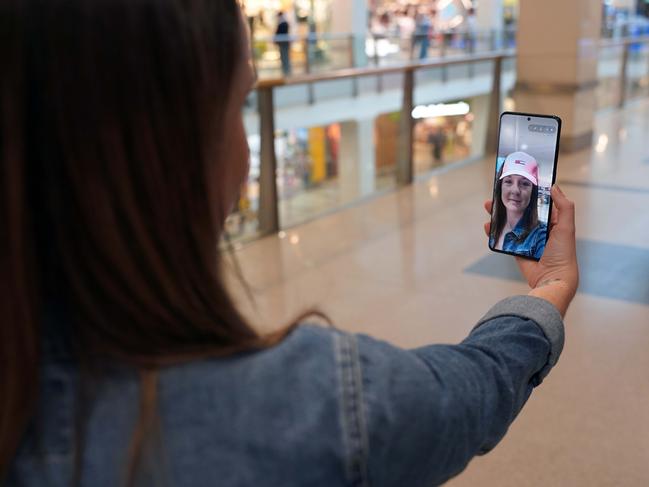
While shopping, you could hold up the phone, look through the screen at a pair of shoes, and see a list of nearby shops that stock them in your size, along with price. You could also virtually try on hats and other apparel.
“Thanks to Optu5G, today’s showcase is a fantastic example of the benefits that 5G can deliver to both the consumer and the retailer, creating a dynamic and efficient shopping experience for the time poor consumer, as well as enabling unique opportunities for retailers to engage even deeper with customers,” says Clive Dickens, VP Content and Product Development at Optus.
Proof of concept is a long way from reality. I still have trouble getting a decent 4G signal in parts of my local shopping centre. The main work in this example will be putting together the enormous shopping databases required, beyond what is available now through online shopping.


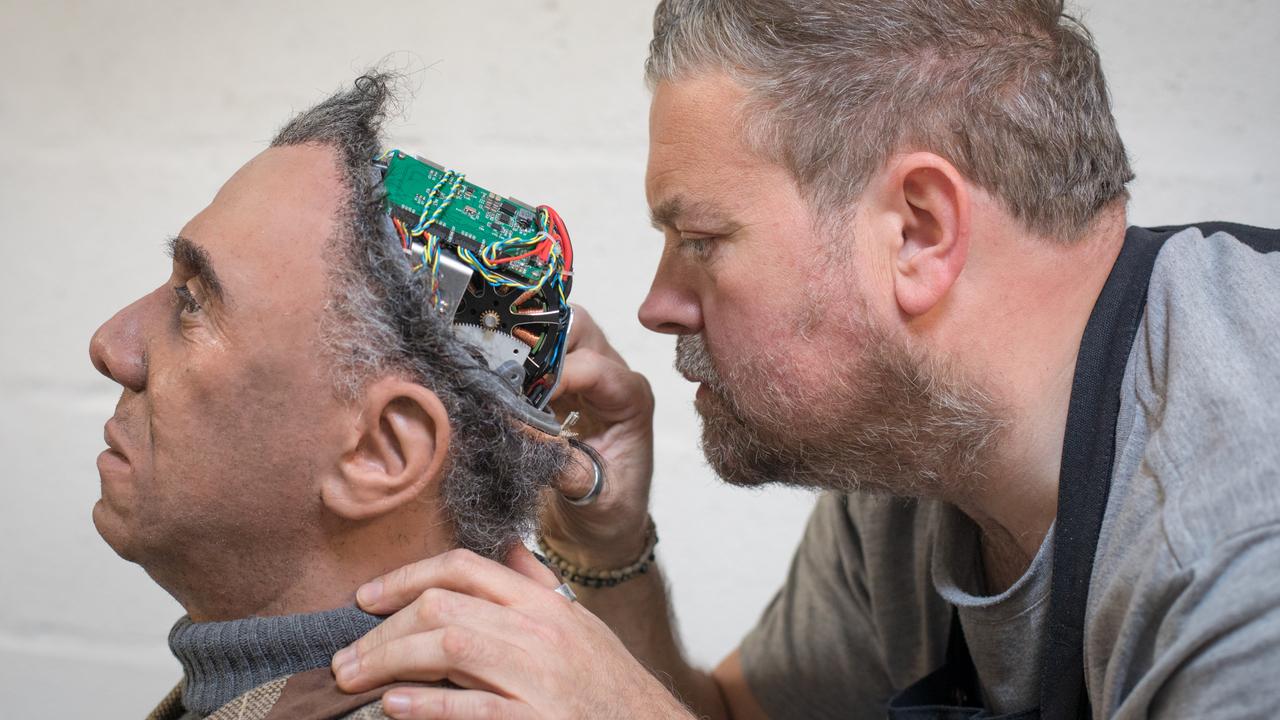
To join the conversation, please log in. Don't have an account? Register
Join the conversation, you are commenting as Logout